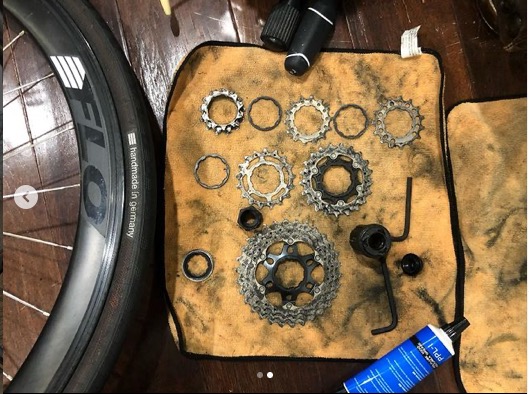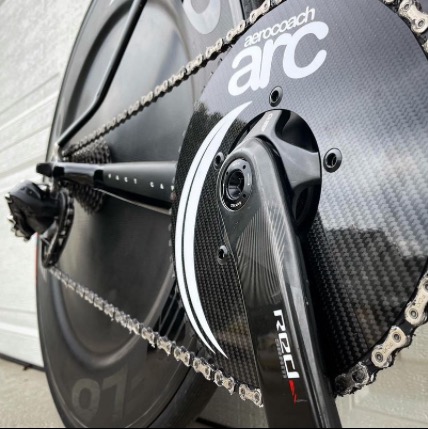The goal for any cyclist is to use whatever you put into pedals to move you forward, efficiently. In my 10 years in this industry, it never fails that the fastest athletes find every mechanical advantage they can.
This article is the introduction for how to be an efficient cyclist. Throughout this series we will discuss buzz words like: power, aerodynamics, rolling resistance, watts, drag, etc. and tell you why they matter.

Cycling Efficiency and Cycling Performance
A simple, scientific definition of riding a bike- you, the rider, applies power to the pedals with your legs and that power turns the wheel to move the bike forward. The power you apply with your legs is measured in watts (W).
Your power meter tells you that you applied 200 W to the pedals. You may assume that all those watts were used to move the bike forward. However, that is not the case.
Mechanical Systems
In a mechanical system, an “Ideal machine” is where efficiency is 100% – there is no loss of energy in the system. So, 200 W in equals 200 W out. An “Ideal Machine” is impossible to create because all mechanical systems experience energy losses. In our example, the 200 W you apply, only a percentage of those watts will move you forward.
Mechanical Losses
Three ways you can lose energy in a mechanical system are through heat, sound, and light. In cycling, the most common is heat, followed by sound. (Losing energy to light does not really apply unless you are using a dynamo to power a light.)
Mechanical losses through heat and sound show up as friction between the chain links, friction in bearings, aerodynamic drag (yes, this is converted to heat and sound), and rolling resistance.

System Efficiency
In order to determine the system efficiency you perform a simple calculation.
Mechanical Efficiency = (Total Power Output (W)/Total Power Input (W)) * 100
Let assume the cyclist puts in 200 W and after losses are calculated, it’s determined that 180 W are moving the cycling forward. This would lead to a mechanical Efficiency of 90%.
Mechanical Efficiency = (180 W/ 200 W) * 100 = 90%
The Fastest Cyclists Are The Smartest Cyclists
I think you can see where we’re going with this. If not, let me state here that reducing your mechanical losses is the key to becoming a more efficient cyclist. Finding ways to make your bike more efficient will get you more speed out of the watts you apply to the pedals. If applying every mechanical advantage took a bike from 70% efficiency to 90% efficiency you would be using 40 more watts to move you forward instead of those watts being lost to heat or sound. That’s a huge difference.
70% Efficient = (140 W /200 W) * 100
90% Efficient = (180 W /200 W) * 100
180 W – 140 W = 40 W
This Series
The rest of this series will detail ways you can improve your mechanical efficiency as a cyclist and out smart your competition.
source https://blog.flocycling.com/aero-wheels/secrets-to-fast-cycling/

No comments:
Post a Comment